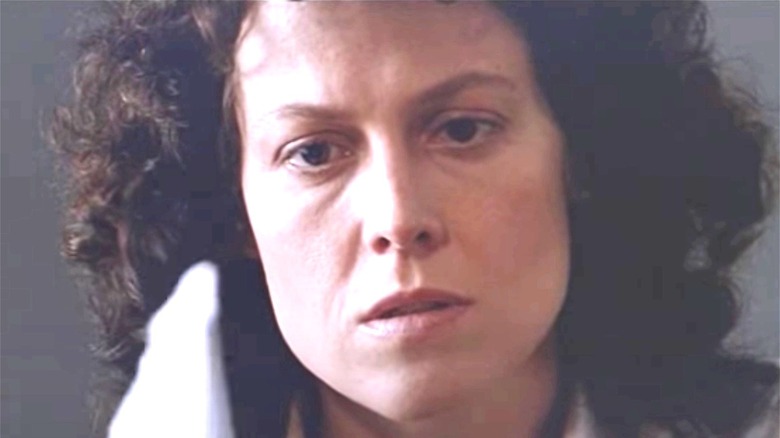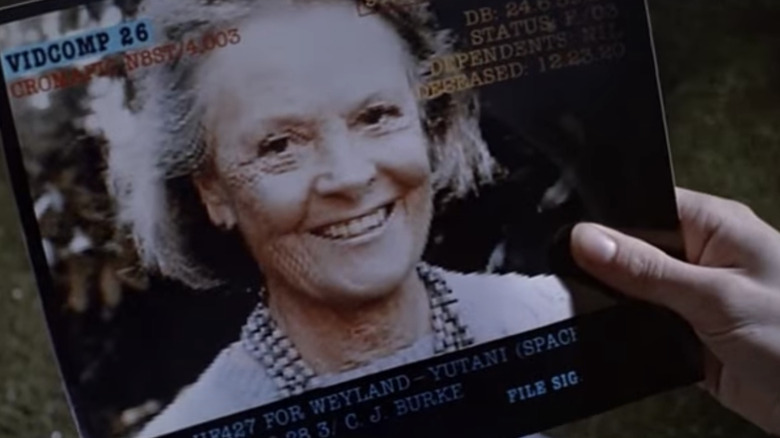The Deleted Aliens Scene That Would Have Changed Everything
When you talk about the greatest sequels in film history, it's impossible to do so without mentioning James Cameron's "Aliens." The film follows Ripley (Sigourney Weaver), the sole survivor of the Xenomorph attack in the original "Alien," who wakes up from a stasis nap 57 years after the original film and is forced to return to LV-426, the exomoon where she first encountered the Xenomorphs.
After arriving on LV-426, Ripley and the rest of the crew find that the aliens have already decimated the colony there. However, there is one survivor — a young girl named Newt (Carrie Henn). Ripley takes Newt under her wing for the rest of the film, becoming extremely protective of her and trying desperately to get them both off the planet. Ripley succeeds, taking down the alien queen and escaping into space with Newt and a few others.
"Aliens" does what all great sequels do — it builds upon the story from the first film and pushes the characters to even greater limits than they've ever faced before. This is especially true of Ripley, whose trauma from the original "Alien" is a lingering weight on her throughout the movie. A deleted Ripley scene would have changed the way viewers looked at the hero and the story entirely, and it's curious why it was left on the cutting room floor.
The loss of Ripley's daughter is heartbreaking
The deleted scene in question shows Ripley shortly after waking up from her stasis pod, as she asks Carter Burke (Paul Reiser), "Do you have any news about my daughter?" Burke sits her down and calmly explains that Ripley's daughter has been dead for two years, explaining she died at 66. Her decision to go into a stasis sleep in the first movie takes on an entirely new light — and we as an audience understand exactly what she's sacrificed fighting these aliens.
It's a complete gut-punch to Ripley, made even more heart-wrenching when she quietly says, "I promised her I'd be home for her birthday. Her 11th birthday," before breaking down and crying in earnest. It seems like a significant piece of character development for Ripley and casts the entire movie in a new light.
The scene makes Newt more than just a girl Ripley's trying to save — she's a representation of the daughter she lost, and saving her becomes an atonement of Ripley's guilt as much as a weight on her conscience. It's such an essential scene in retrospect, and it's very strange that it was left out of the theatrical release as it casts Ripley in an entirely different light.

